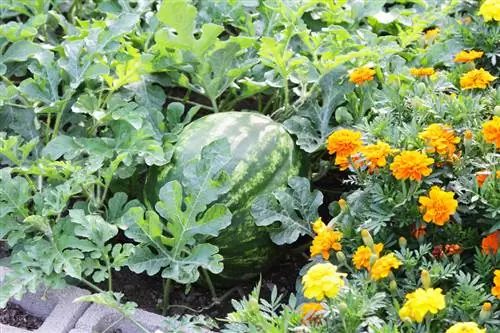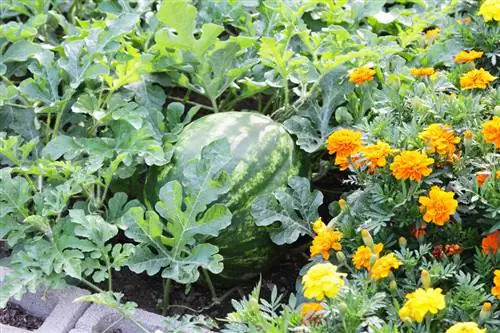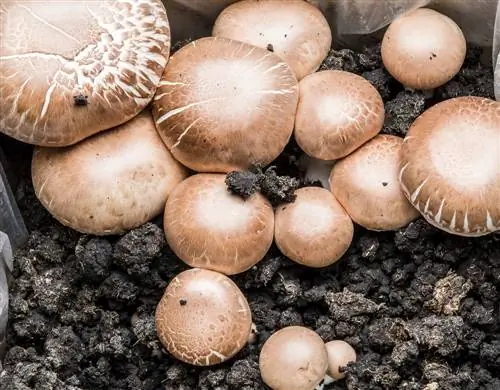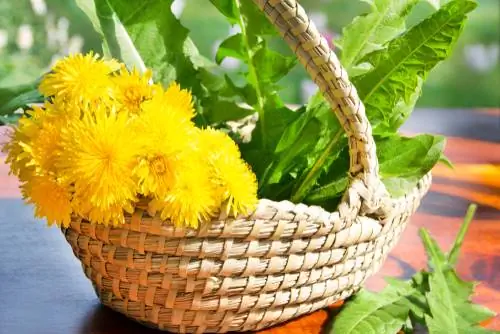- Author admin leonars@hobbygardeners.com.
- Public 2023-12-16 16:46.
- Last modified 2025-01-23 11:20.
Tagetes are so omnipresent in our home gardens that we often hardly pay any attention to the cheerfully bright flowering plants. The student flower doesn't just look attractive. Many marigold varieties are an edible exotic treat. After all, the eye eats too, and the wonderful orange-red flowers are a beautiful splash of color in salads, desserts or on the plate.

Which marigold varieties are edible?
Tagetes, also known as marigolds, are edible and offer an exotic treat. Edible varieties are: tagetes tenuifolia (citrus-like aroma), tagetes lucida (spicy, anise-like), tagetes minuta (aniseed aroma), and tagetes filifolia (sweet root aroma).
It depends on the variety
Even if they are not poisonous, not all marigold varieties are aromatic. The flowers of the marigold often taste unpleasantly bitter. Tasty flowers have:
- tagetes fenuifolia. Its aroma is reminiscent of fully ripe citrus fruits.
- tagetes lucida. This variety tasted extremely spicy, like aniseed. In South America, this marigold is used like parsley.
- tagetes minuta. This type also has a pleasant anise aroma. The leaves are used in the South American homeland of the marigold as a salad and sauce seasoning.
- tagetes filifolia. Because of the intense sweet root aroma of this type of marigold, which has small white flowers, this marigold is also known as licorice marigold. You can snack on the leaves directly from the bush - an extremely he althy and figure-friendly treat. The plant parts can also be made into tea or licorice vinegar.
You can dig up all edible marigold flowers in the fall and overwinter indoors so that you can enjoy the spicy flowers and leaves even in the cold season.
The spiced tagetes
Hobby cooks will love this plant, because the tagetes tenuifolia (narrow-leaved marigold) not only blooms tirelessly and smells very pleasant, but it is also edible. The pretty orange-red flowers and leaves have a delicate tangerine peel aroma that goes wonderfully with summer salads and desserts. Hot dessert sauces with wine get an exceptionally interesting taste when flowers or leaves are added.
Tip
In homeopathy, marigold is used for depressive moods. The South Americans say that marigolds bring the sun back to life with their sunny appearance.






